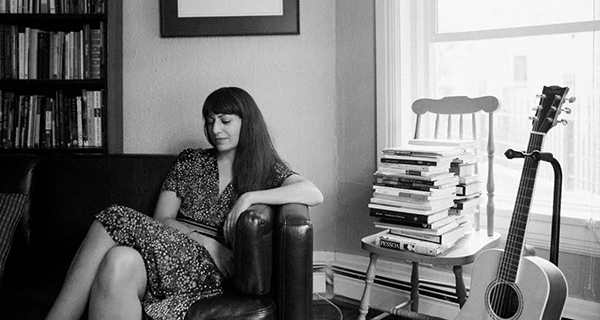
By Andre Gianfrancesco
Carolina Ebeid's first book, You Ask Me To Talk About The Interior, was published by Noemi Press in 2016. She recently joined the poetry faculty at Lighthouse and the masthead at The Rumpus. We asked her a few questions ahead of her Introduction to Poetry workshop starting August 16th.
Q) How do other genres of writing, and other forms of art, influence your writing?
A) I think about this question a lot because I’m often saying, while watching a film or listening to experimental drone music, I want to make my poems to do that. There is much to learn from other makers, and I go to them in the midst of writing to study, for example, how time works in film, how I can incorporate that dancer’s movement from stanza to stanza, how space and heft in sculpture can bear in my own writing, how the flat surface can have the depth or the texture or the spareness of a painting. Reading art criticism, where the physical descriptions of a piece are necessarily present, helps me (immensely) understand what a poem is, what a poem is capable of.
Q) As an editor for both Visible Binary and The Rumpus, how does moving between editor, writer, and now teacher impact your work? And what strategies help you balance these roles?
A) While they are all oriented toward poetry, each role requires a slightly different set of faculties and attentions. Visible Binary is an online magazine that my 13-year-old son edits—it’s a family affair and very fun to help make. For me, VB is all about nurturing my son’s interest in poetry and artistic experimentation, as well as instilling in him a sense of collaboration. And collaboration is exactly what my work at The Rumpus is, as I co-edit the magazine with Courtney Lamar Charleston. Our conversations suggest that we are building something: we exchange our particular vision for the thing, we make decisions, we send emails, we publish, we promote. Being an editor for various magazines has broadened and/or deepened my connection to other writers, which I value. All of which brings me to this: as a poet, I have to close the door and slow down that busyness. I have to physically create for myself an altogether different atmosphere for writing, which means a change of location, a change of music and mood—especially since I write on my computer where all the other correspondences take place. The work of poetry invites many moments of opening and a serious engagement with the unfinished, whereas the work of editing is filled with moments of closure.
Q) When working as an editor do you ever read a poem or a line and wish you had written it first?
A) All the time! Thankfully, I don’t let that sting of jealousy hinder my writing. I accept it as though the writer is handing me a baton, and now I have to run down the track. I take that energy and try to do something of my own.
Q) What lessons from your first collection You Ask Me To Talk About The Interior have helped you with your current book project Hide?
A) I feel more mature, and therefore able to take further risks with Hide. When I was putting the poems together, poems that had been written over a long span of time, I was perpetually concerned with how my manuscript would be received in a contest setting. Questions such as: which poem should go first; will such-and-such judge hold any affinity towards my writing? These concerns are not exerting their pressures on me right now.
Q) Poetry can vary from writer to writer, so when you're teaching poetry, how do you manage the dynamic, vast, and idiosyncratic nature of the genre?
A) To step into the classroom as a teacher is very much like stepping into a garden, and you, as teacher, are tasked with making the various plants flourish. It is less an engagement with
“managing” the class, and more the job of listening. As we read together, and workshop the responses to the assignment, I try to listen in to the particular imagination at work before me. What attention might this poet need; what authors/artists should this poet encounter next. It’s a deep joy to introduce student-poets to writers they had not known yet. Preserving the diversity is important—I trust that some sort of eco-system is at work. Raúl Zurita says that there is room for all kinds of poetry. The writing of one great work does not undo the last century’s great work as it might in the sciences. He says that each new poem helps to further construct paradise.
Andre Gianfrancesco was a spring intern at Lighthouse.

